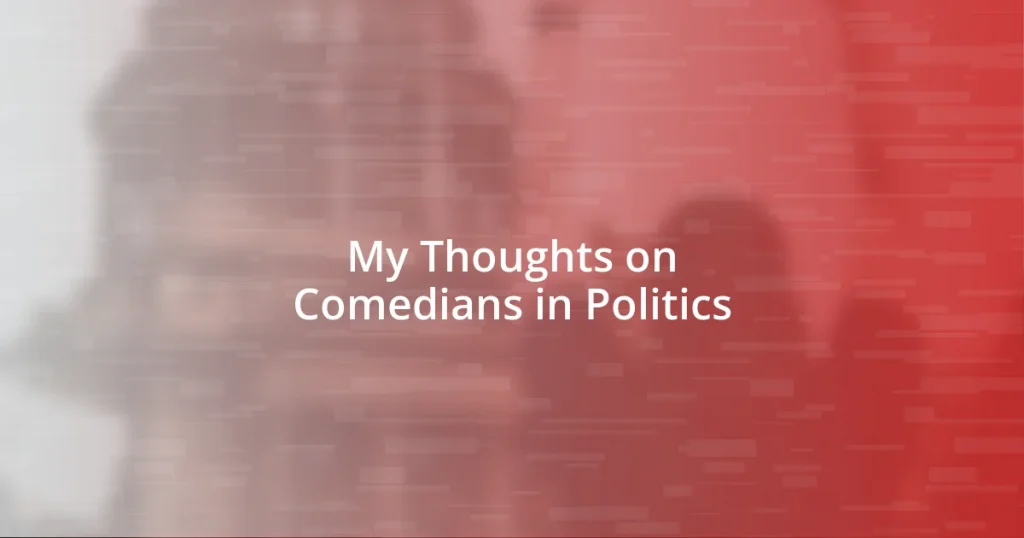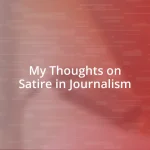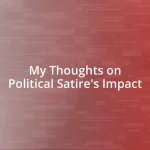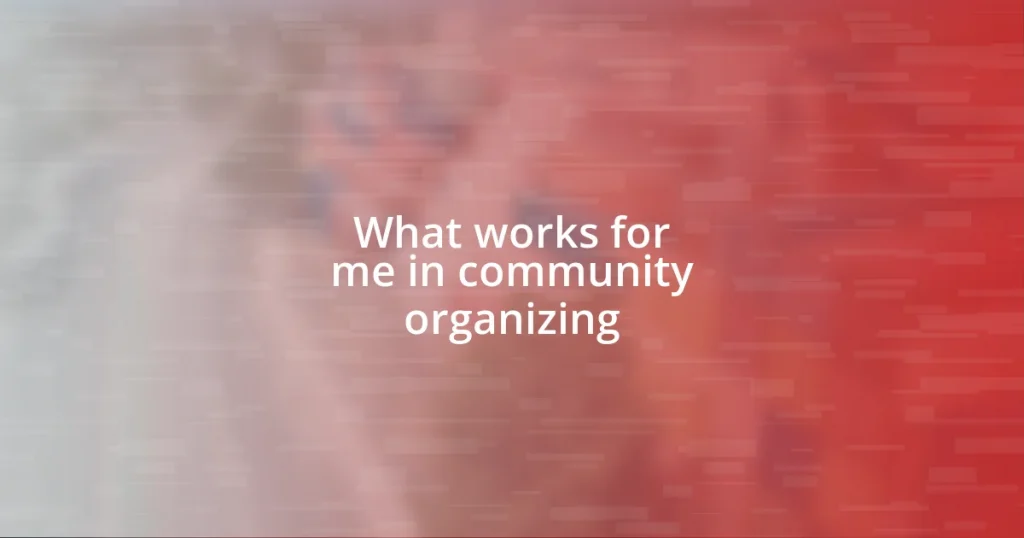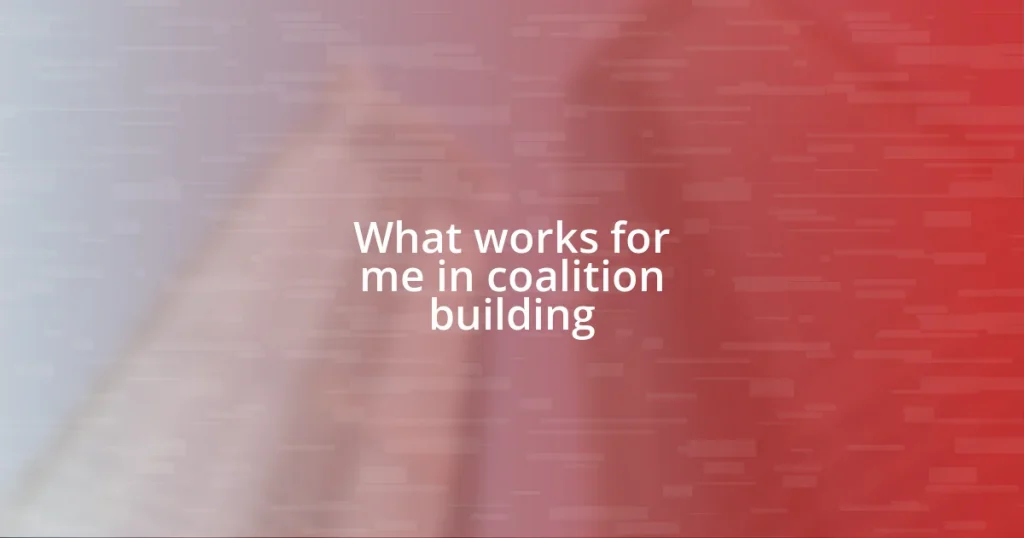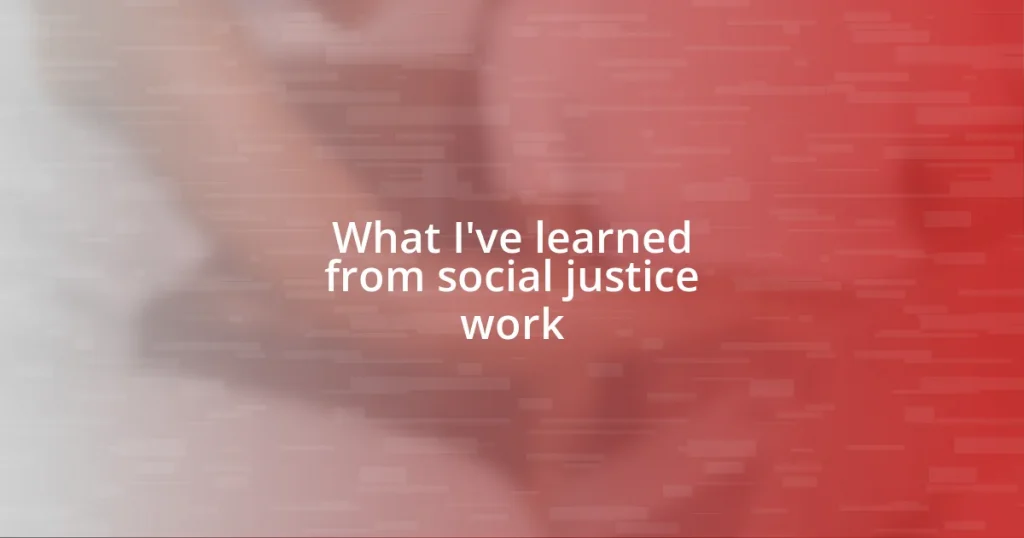Key takeaways:
- Comedians like Jon Stewart and Bill Maher effectively bridge the gap between the public and political discourse, using humor to prompt critical conversations about serious topics.
- The role of humor in politics fosters relatability and openness, making complex issues more accessible and encouraging active engagement rather than passive consumption.
- Comedian politicians, such as Al Franken and John Oliver, utilize their backgrounds to connect with audiences, sparking awareness and advocacy through humor, but face challenges in being taken seriously in political roles.
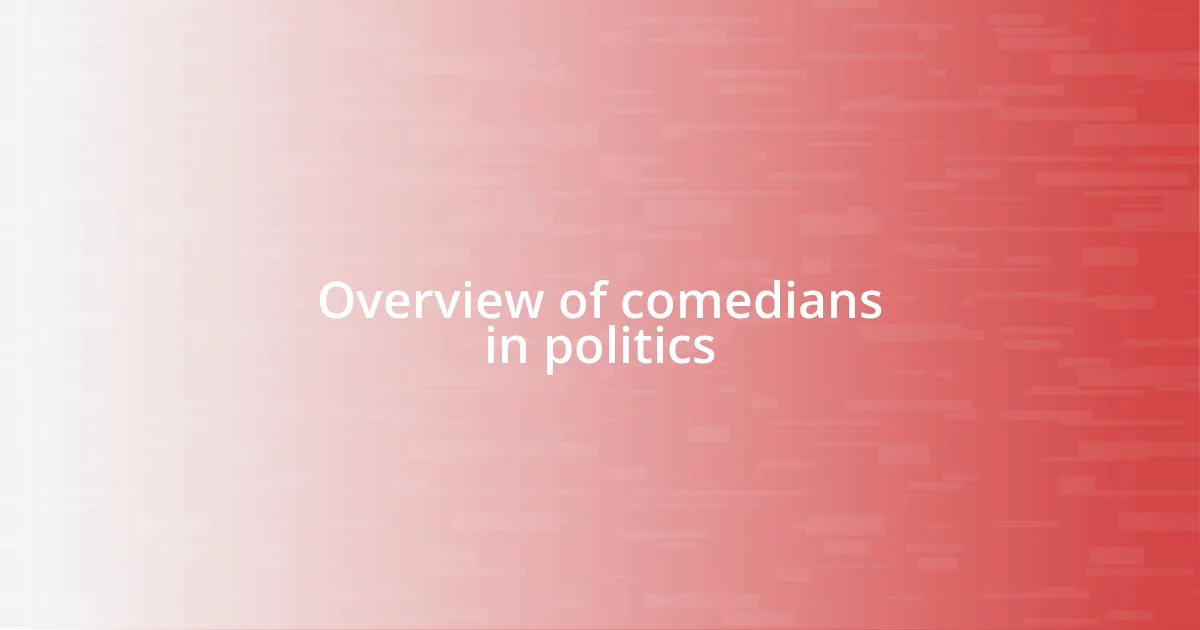
Overview of comedians in politics
Comedians in politics serve a unique role, often acting as a bridge between the public and the complex, often murky waters of political discourse. I remember watching Jon Stewart during his time on “The Daily Show,” where he deftly dissected political events with a blend of humor and insight. How powerful it felt to laugh while gaining a deeper understanding of the issues at play—it transformed the way I viewed news.
The increasing presence of comedians in political commentary raises some intriguing questions. Are they simply entertainers, or do they hold greater influence in shaping public opinion? From personal experience, I’ve found that a well-timed joke can make an uncomfortable truth more digestible, prompting conversations that might be avoided otherwise.
It’s fascinating to observe how comedians can disarm their audience, oftentimes making them more receptive to critical conversations around politics. I recall a satirical skit from Bill Maher that turned my initial apprehension about a particular political issue into curiosity. It’s these moments that highlight the importance of humor in politics—not merely as a tool for amusement, but as a means to foster engagement and provoke thought.
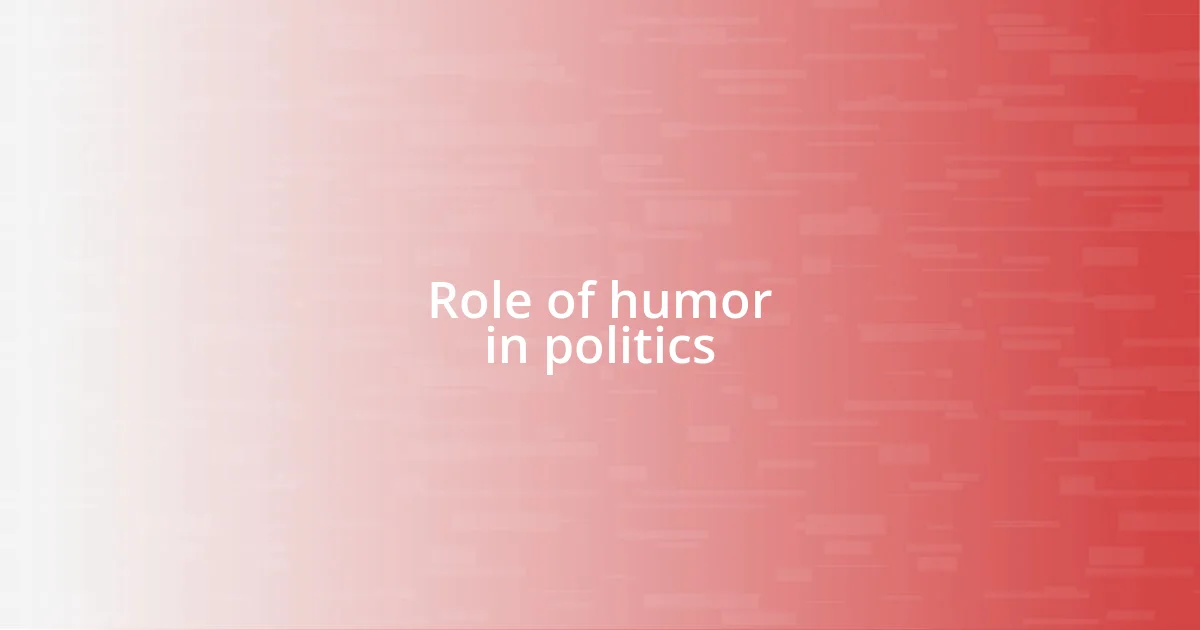
Role of humor in politics
Humor serves as a vital tool in politics, providing a unique lens through which complex issues can be viewed and understood. I remember an episode of “The Colbert Report” that used satire to highlight the absurdities of legislative processes. It not only made me laugh but also prompted me to reflect on how flawed certain systems can be. This blend of entertainment and critique creates a more enjoyable way to engage with serious topics.
In comparison to traditional political discourse, comedians present a refreshing approach that can break down barriers between politicians and the public. I’ve often found that watching a comedian address a political issue has allowed me to feel more connected to the topic. When humor is employed, it invites us in rather than pushing us away—lowering defenses and making us more open to difficult conversations.
Moreover, the role of humor in politics often serves as a form of social commentary, highlighting the ridiculousness of certain political narratives. There’s something incredibly powerful about this; I often think back to satire that exposed hypocrisy in a way that left me both laughing and thinking. This dual impact of humor not only entertains but inspires us to engage critically with the political landscape.
| Aspect | Traditional Discourse | Humor in Politics |
|---|---|---|
| Connection with Audience | Often impersonal | Creates relatability and openness |
| Understanding of Issues | Can be convoluted | Simplifies and clarifies |
| Engagement Level | Passive | Active participation and reflection |
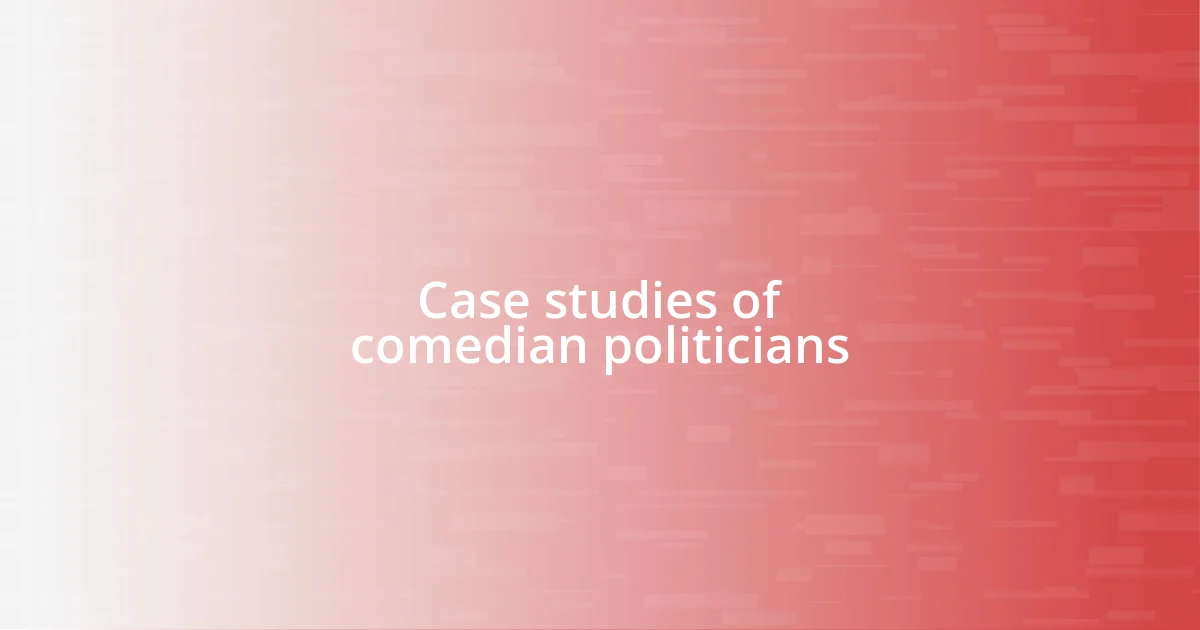
Case studies of comedian politicians
I’ve observed the rise of comedian politicians and how their unique backgrounds influence their approach to governance. Take Al Franken, for instance, who transitioned from “Saturday Night Live” to the U.S. Senate. His comedic instincts often surfaced during debates, allowing him to mix humor with policy discussions—something that made his constituents feel closer to him. It’s intriguing how he blended his past experiences to address serious topics, making me wonder if humor can indeed be an effective tool in politics.
Another compelling case is John Oliver from “Last Week Tonight.” His deep dives into complex issues—often layered with humor—made me rethink how I engage with current events. I recall his segment on net neutrality that not only educated me but also inspired me to advocate for change. Could it be that comedians like him spark movements simply through laughter and insight?
I can’t help but think about how the comedian-turned-politician trajectory often blurs lines. Consider the impact of figures like Jimmy Morales in Guatemala, who leveraged his comedic background to connect with the public on a personal level. But does this approach always resonate? Personally, I feel that while some find it refreshing, others may struggle to take comedians seriously in positions of power. That dichotomy presents a fascinating dynamic worth exploring further.










